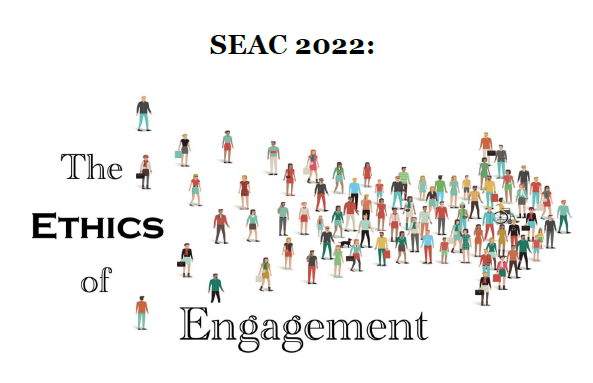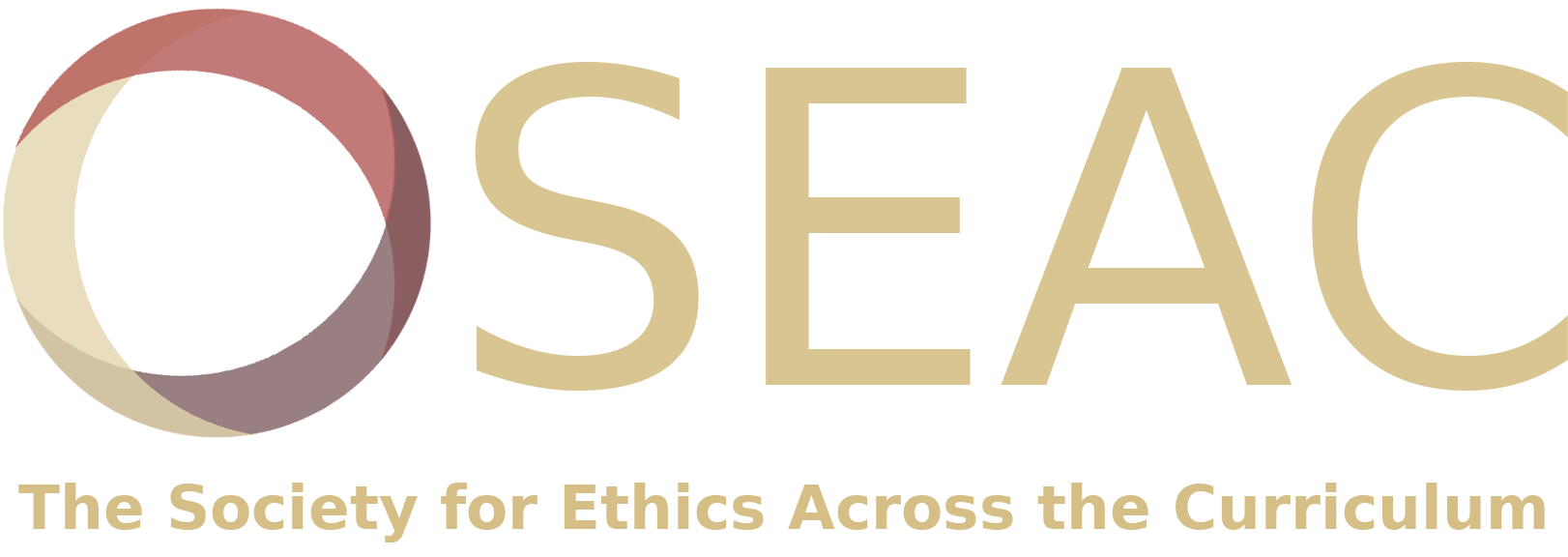
Concurrent Session 3A
Location
Ford Ballroom A, The Inn at Ole Miss
Start Date
6-10-2022 2:35 PM
End Date
6-10-2022 3:45 PM
Description
- Short, Focused Civic Engagement for Remote/Online Learning (Virtual) / Benjamin Hole, Marywood University
The pandemic, and the shift to more remote learning, makes civic engagement (CE) pedagogy difficult. It is difficult find meaningful ways for students to engage civically in an online format. One strategy is to design short, focused CE assignments that ask students to identify issues of public concern they are passionate about around different topics, and then ask them to engage online in structured ways. CE in ethics courses helps reduce moral skepticism, casuistry, boredom, apathy, and cowardice, by making ethical goals student-centered. Focused CE assignments for online ethics courses retain much of this value, while reducing the student burden to figure out how to engage remotely. For example, when studying consequentialism, a CE assignment might ask students to choose a civic issue related to making the world a better place, and advocate for that change by writing a letter to a public official, or participating in a protest or demonstration. Or, when studying rights issues, students might research a public policy, write a policy brief, make a short video explaining the brief to potential participants in advancing or blocking the policy, and then post it on a local community forum. These short, focused CE assignments aligned with common ethics course themes, so different instructors can choose what works for them, given their teaching contexts and pedagogical goals. This presentation will share general strategies, sample assignments and rubrics, which can be incorporated into different course designs, as well as a few success stories. - Moral Critical Thinking: Higher-Education Course Content / Mark Herman, Arkansas State University
This presentation regards content on moral critical thinking that befits courses in higher education, especially critical thinking, and applied ethics courses. I present a taxonomy and exemplars of content drawn from a survey of (1) 10 texts dedicated to topics approximating moral critical thinking (though usually not using that terminology), (2) sections on reasoning and critical thinking methods found in ethics and moral philosophy textbooks, (3) chapters regarding moral reasoning and ethical decision-making in critical thinking textbooks, and (4) texts on behavioral ethics (i.e., an approach modeled on cognitive heuristics, biases, and debiasing that leverages findings from empirical moral psychology to improve morally-relevant behaviors). Particular attention is paid to (1) the extent to which the methods covered are morality-specific (as opposed to “merely” applying domain-general methods to moral content), (2) the emphasis upon belief formation vis-à-vis decision-making/action, and (3) the relevance of methods to “day-to-day life” versus academic philosophy. I also discuss issues such as challenges regarding skill transfer that stem from tensions between the moral psychological presuppositions of some prescriptive methods and descriptive constraints, especially within day-to-day life, suggested by empirical moral psychology.
Session Chair: Benjamin Johnson, Utah Valley University
Relational Format
conference proceeding
Recommended Citation
Hole, Benjamin; Herman, Mark; and Johnson, Benjamin, "Concurrent Session 3A" (2022). Society for Ethics Across the Curriculum Conference. 12.
https://egrove.olemiss.edu/seac/2022/schedule/12
COinS
Oct 6th, 2:35 PM
Oct 6th, 3:45 PM
Concurrent Session 3A
Ford Ballroom A, The Inn at Ole Miss
- Short, Focused Civic Engagement for Remote/Online Learning (Virtual) / Benjamin Hole, Marywood University
The pandemic, and the shift to more remote learning, makes civic engagement (CE) pedagogy difficult. It is difficult find meaningful ways for students to engage civically in an online format. One strategy is to design short, focused CE assignments that ask students to identify issues of public concern they are passionate about around different topics, and then ask them to engage online in structured ways. CE in ethics courses helps reduce moral skepticism, casuistry, boredom, apathy, and cowardice, by making ethical goals student-centered. Focused CE assignments for online ethics courses retain much of this value, while reducing the student burden to figure out how to engage remotely. For example, when studying consequentialism, a CE assignment might ask students to choose a civic issue related to making the world a better place, and advocate for that change by writing a letter to a public official, or participating in a protest or demonstration. Or, when studying rights issues, students might research a public policy, write a policy brief, make a short video explaining the brief to potential participants in advancing or blocking the policy, and then post it on a local community forum. These short, focused CE assignments aligned with common ethics course themes, so different instructors can choose what works for them, given their teaching contexts and pedagogical goals. This presentation will share general strategies, sample assignments and rubrics, which can be incorporated into different course designs, as well as a few success stories. - Moral Critical Thinking: Higher-Education Course Content / Mark Herman, Arkansas State University
This presentation regards content on moral critical thinking that befits courses in higher education, especially critical thinking, and applied ethics courses. I present a taxonomy and exemplars of content drawn from a survey of (1) 10 texts dedicated to topics approximating moral critical thinking (though usually not using that terminology), (2) sections on reasoning and critical thinking methods found in ethics and moral philosophy textbooks, (3) chapters regarding moral reasoning and ethical decision-making in critical thinking textbooks, and (4) texts on behavioral ethics (i.e., an approach modeled on cognitive heuristics, biases, and debiasing that leverages findings from empirical moral psychology to improve morally-relevant behaviors). Particular attention is paid to (1) the extent to which the methods covered are morality-specific (as opposed to “merely” applying domain-general methods to moral content), (2) the emphasis upon belief formation vis-à-vis decision-making/action, and (3) the relevance of methods to “day-to-day life” versus academic philosophy. I also discuss issues such as challenges regarding skill transfer that stem from tensions between the moral psychological presuppositions of some prescriptive methods and descriptive constraints, especially within day-to-day life, suggested by empirical moral psychology.
Session Chair: Benjamin Johnson, Utah Valley University


